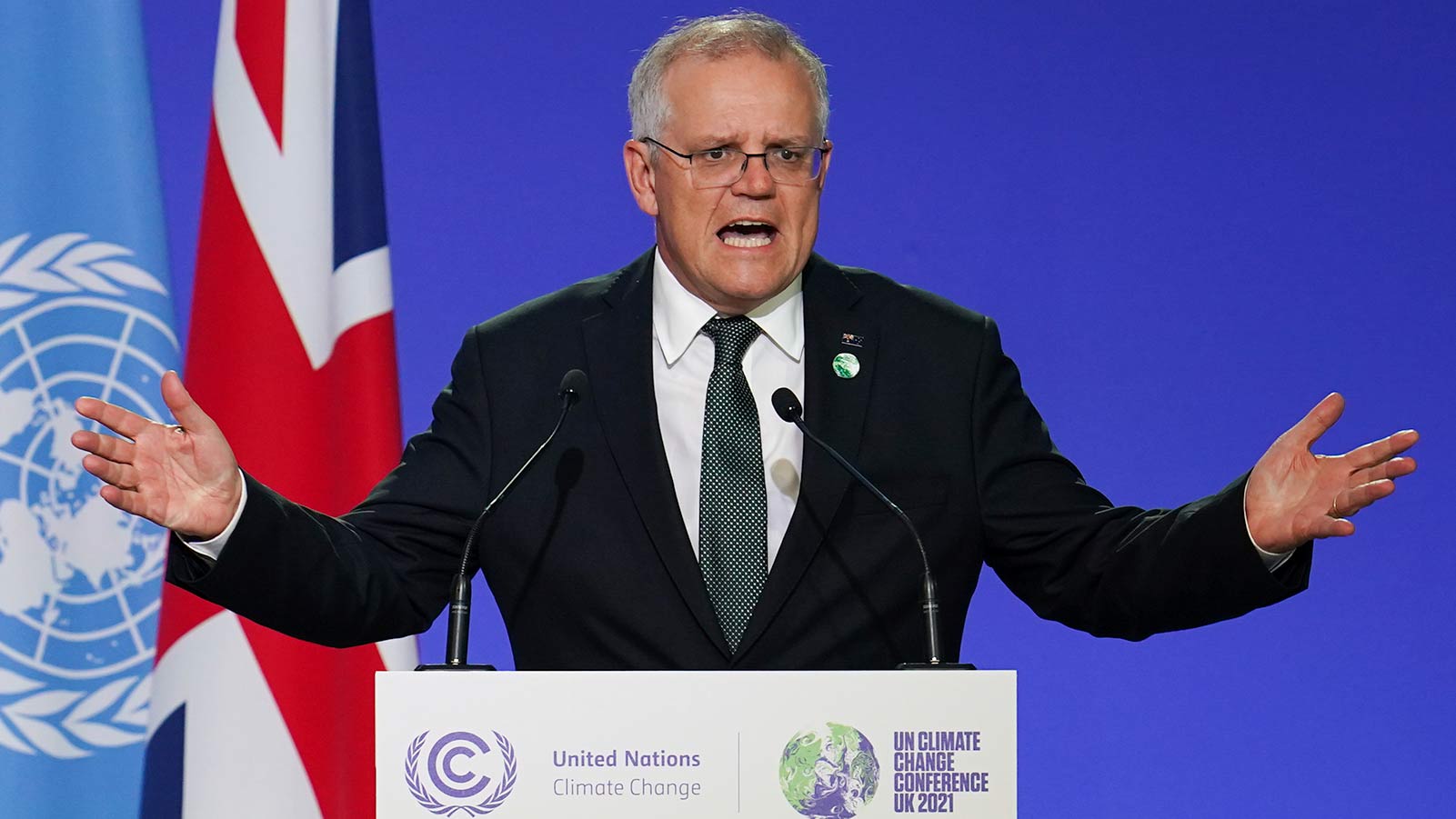Australia faces a future with increasingly extreme weather events – featuring more intense bushfires, floods and droughts – and has been left vulnerable by a federal government that has failed to prepare or plan for the worsening impacts of climate change.
The latest report from the Intergovernmental Panel on Climate Change (IPCC), published on Monday, has warned that Australia faces significant “cascading and compounding” risks due to climate change, including damage from bushfires, floods, drought and sea-level rise.
But whether it is a plea heeded by the Morrison government – a government that features a defence minister who prefers to raise flood recovery funds by way of a crowdfunding campaign rather than proper government action – is dependent on a significant change of tune on climate change.
It is the latest in a series of authoritative reports from the IPCC and details the latest scientific understanding of the predicted climate impacts, the need for adaptation, and the vulnerability of particular communities and ecosystems.
The report describes a future climate of increasing extremes, oscillating between periods of intense drought and bushfires and periods of flooding rains, such as those currently bearing down on communities across Australia’s east coast.
The IPCC issued a plea to governments to be proactive, rather than reactive, in implementing adaptation measures ahead of the predicted impacts on both Australian communities and vulnerable ecological systems.
Under the framework of international climate talks, governments committed to preparing an official National Adaptation Plan designed to flesh out strategies for responding to climate change threats and reducing their impact on communities, ecosystems, and the broader economy.
While more than a hundred countries have since published detailed National Adaptation Plans, Australia has yet to submit its own official plan for climate adaptation to the UN climate talks.
Instead, the Morrison government has conceived its own “National Climate Resilience and Adaptation Strategy,” which lacks formal targets or meaningful adaptation policies.
Australia’s strategy was ranked last in an expert assessment of the adaptation plans published by the governments of 54 countries, finding Australia was amongst the nations most vulnerable, but whose plan was not aligned with the Paris Agreement.
The Morrison government has eschewed its responsibilities at the UN climate talks, refusing to commit to a stronger 2030 emissions reduction target and refusing to address calls to phase out coal use and methane emissions at the COP26 talks held last year in Glasgow.
Such lack of action fails to address the growing risks to Australia’s ecological systems, the physical safety of vulnerable communities and the economic future of several major Australian industries.
It also sees Australia’s regional neighbours left without much needed assistance from the region’s major economic power. Again, an economic power who’s now defence minister mocked Pacific Island leaders about the prospect of rising sea-levels.
For example, the IPCC predicts that global warming of just 2 degrees would decimate 99 per cent of the world’s coral reefs. This alone would virtually destroy the biodiversity and economic value of the Great Barrier Reef.
In a submission to the National Climate Resilience and Adaptation Strategy, think tank The Australia Institute told the Morrison government that its lack of meaningful action was pushing the burden for climate adaption onto the Australian community.
“The majority of Parties to the Paris Agreement, at least 106 countries, have fulfilled their adaptation responsibilities to the Paris Agreement by adopting national climate adaptation plans or policies,” the Australia Institute said.
“Australia does not have a national adaptation plan nor a national climate risk assessment – despite these documents being prescribed by the United Nations Framework Convention on Climate Change. This is not the norm and certainly not best practice.”
“Currently, the burden falls almost entirely on ordinary Australian households and businesses, while the handful of companies primarily responsible for driving climate change contribute virtually nothing to the costs, and most pay little if any tax in Australia. It is untenable for these increasing costs to continue to be borne by those on the front line,” the think tank added.
In its latest report, the IPCC warns of the risks of maladaptation by governments.
This includes measures that appear to address the impacts of climate change – such as damage from bushfires and floods – but fail to deliver preventative actions to prevent such damage from recurring in the future.
As detailed by previous IPCC reports, adaptation serves as a complementary response to the threat posed by climate change, with governments needing to act to achieve reductions in greenhouse gas emissions as well as prepare communities for the impacts that are already likely locked in.
Lead author on the Australia/New Zealand chapter of the new IPCC report, RMIT professor Lauren Rickards, told a media briefing on Monday, that governments were not on track to implement adequate adaptation measures.
“Climate change presents risks to nature and to people around the world and these are going to increase with every small increase in warming,” Rickards said.
“We need to underline that adaptation can’t be divorced from mitigation conceptually or in practice. We need adaptation to enable effective mitigation and we need effective mitigation to enable adaptation to give it a chance of succeeding. At present, we’re not on track, and we need to pivot quickly.”










